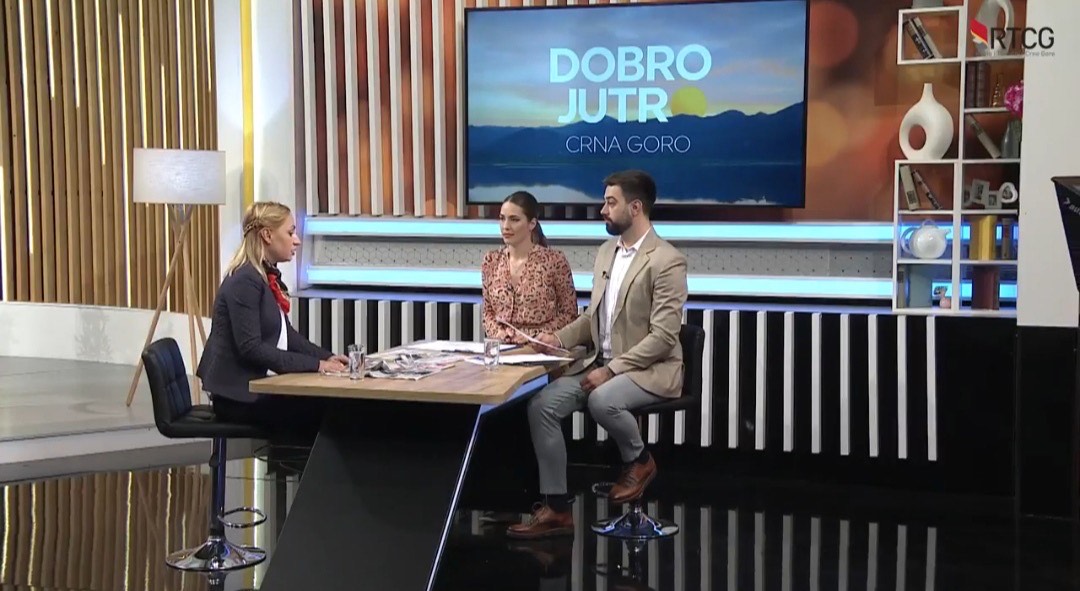The Agency for Personal data Protection should protect the citizens of Montenegro, whose personal data is illegally used for political promotion, and not directly interfere in the electoral process by blocking the legally prescribed right of observation missions to monitor the legality and transparency of the electoral process.
This was announced by the executive director of the Centre for Monitoring and Research (CeMI), Ana Nenezić, during a guest appearance on the program "Dobro jutro Montenegro" on the Television of Montenegro.
"Now we have a situation where a large number of citizens often call us because of their concern that political parties have their personal data and phone numbers." On a daily basis, they receive calls in which party activists address them by name and surname, demanding certain statements from them. Then you wonder what the Agency Personal data Protection is doing in those cases, if it acts so proactively in cases where it is necessary to prohibit the organizations that monitor the election process from having access to the documents they need in order to follow what is happening there," she said. is Nenezic.
She reminded that CeMI has been following the elections for more than 20 years and that this time, together with other organizations that monitor the elections, they are faced with the non-transparency of the election process by the competent institutions.
"We are not allowed to have access to the documents accompanying the candidate's application, and the Ministry of Internal Affairs does not allow access to the voter list either, which was the case in previous years." This is understandable, because it will reveal some mechanisms that point to abuses. Thus, we previously had a situation where, by matching the data, we came to the fact that more than three thousand voters were also registered in the voter list of Serbia. We announced that publicly, but it was pushed under the carpet," said Nenezić.
She pointed out that they expected that after the 2020 elections and the change of government there would be a reform of the electoral legislation, but that this did not happen.
Speaking about the campaign finance, Nenezić said that the campaign started even before the candidates were officially confirmed, so the question is how it can be controlled, because by law it is not possible.
"The law stipulates that financing from abroad is prohibited. However, we do not have a regulation if candidates are campaigning from abroad, and we see that happening. This applies to all candidates, as they are all more or less in the same position. It remains an open question how the institutions will behave towards this type of activity," said Nenezić.
Asked to comment on Milojko Spajić's case, Nenezić said that there is both a legal and a political part of the problem and they cancel each other out.
"I believe that the decision of the Ministry of Internal Affairs was key, and that they were not introduced into that process by the SEC, but instead asked for data from the institutions of Serbia, and that is the real part of the issue." The political part is that Spajić admitted that he has dual citizenship and that he acquired it illegally, and I don't think that someone can start a presidential campaign like that. The question arises that if we had not obtained these data, and he had been elected president, would he have been a weak link that could be influenced by a foreign factor. It's a complex issue and it's a burden for Jakov Milatović, the candidate of the Europe Now Movement," said Nenezić.
Based on all the projections, as he assesses, there will be a second round, but that it is uncertain who will be the second candidate besides Đukanović.
"If there was cooperation between Aleksa Bečić and Milatović, they would have passed together, but by deciding to campaign individually, it is difficult to say who will go to the second round, but they increased Andrija Mandić's chances," concluded Nenezić.
